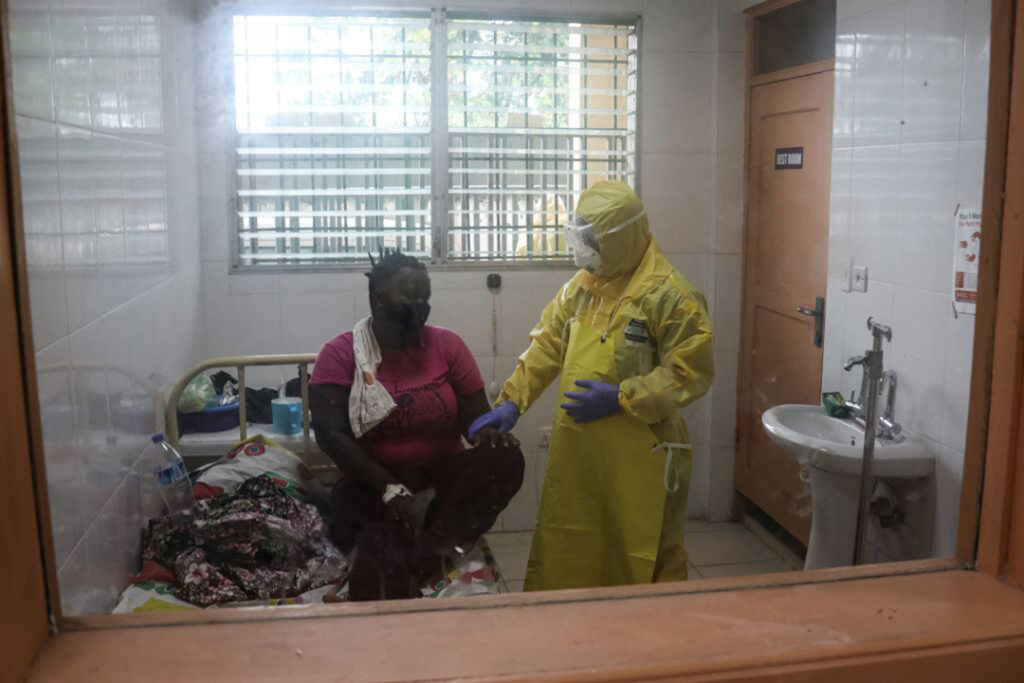ADF STAFF
On March 18, 2020, the World Health Organization (WHO) announced a large, international study of four potential COVID-19 treatments.
“We have called this study the Solidarity trial,” WHO Director-General Tedros Adhanom Ghebreyesus said.
Only two African nations participated in the first phase; most were left out because their levels of health care for severely ill patients were lacking.
“It was an important missed opportunity,” Quarraisha Abdool Karim, a clinical epidemiologist in Durban, South Africa, told Nature magazine.
The continent has a critical need for inexpensive, easily attainable COVID-19 treatments to reduce symptoms and ease the strain on hospitals.
But Africa is lagging in the race to test these drugs.
Established treatment options, like monoclonal antibodies or the antiviral drug remdesivir, are expensive and must be administered in hospitals.
Another option on the horizon is molnupiravir, a pill made by Merck. But its cost might be beyond the reach of many nations.
More than any other continent, Africa needs effective therapeutics to fight the pandemic.
“We need urgently to identify affordable and easy-to-administer treatments that can prevent the evolution to a severe form of the disease and slow the rate of infection,” Africa Centres for Disease Control and Prevention Director John Nkengasong said in April 2021.
Historically a problem, a lack of clinical trials in Africa means a lack of access to approved therapeutics.
According to the United States National Library of Medicine, there are nearly 2,000 trials of drug treatments for COVID-19. About 150 are registered in Africa — the vast majority in South Africa and Egypt.
Among the obstacles to increasing the number of trials in Africa are a lack of infrastructure, a shortage of participants and strict regulations.
In developing COVID-19 treatments, many researchers are drawn to repurpose drugs because they often are the easiest and quickest to distribute.
But in countries that lack of infrastructure — dependable electricity, internet, supplies and logistics coordination — researching, developing and manufacturing pharmaceuticals is difficult.
There are positive signs, however, that the number of clinical trials is going up. The Pan African Clinical Trials Registry recorded 606 clinical trials in 2020 — an increase of almost 200 trials compared with 2019. The registry reported 271 this year, as of August 2.
Africa’s largest trial, called ANTICOV, launched in September 2020 and has more than 500 participants across 14 sites in Burkina Faso, the Democratic Republic of the Congo, Ghana, Guinea, Kenya, Mali and Mozambique.
Its goal is to recruit 3,000 participants in 13 African countries to test affordable drugs that can prevent mild COVID-19 cases from developing into severe illnesses.
ANTICOV also helped clear some regulatory obstacles when it collaborated with the WHO on an emergency process for joint reviews of clinical studies in 13 countries.
“This is the first major drug trial across the continent,” John Amuasi, ANTICOV’s lead epidemiologist in Ghana, told Science magazine. “I would have liked this to come much earlier, but it’s really great that this is happening.”
Another study in South Africa to test the efficacy and safety of repurposed drugs is known as ReACT — Repurposing Anti-Infectives for COVID-19 Therapy.
In late October, the inventors of an oral COVID-19 preventive received clearance from South Africa to begin patient enrollment for a phase 1 clinical trial.
A Canadian pharmaceutical company announced in November it is in “advanced talks” with Morocco to conduct a phase 2 clinical trial for its drug, apabetalone.
Despite low African participation in the WHO’s initial Solidarity trail, officials laid the groundwork for more COVID-19 treatment trials on the continent.
In August 2021, the WHO announced the next phase — Solidarity Plus — a trial that will test three other drugs. Five more African countries will participate.

